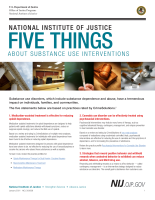A Randomized Pilot of the Engaging Moms Program for Family Drug Court
Journal
Journal of Substance Abuse Treatment
Date Published
April 2010
Publication Type
Program/Project Evaluation



